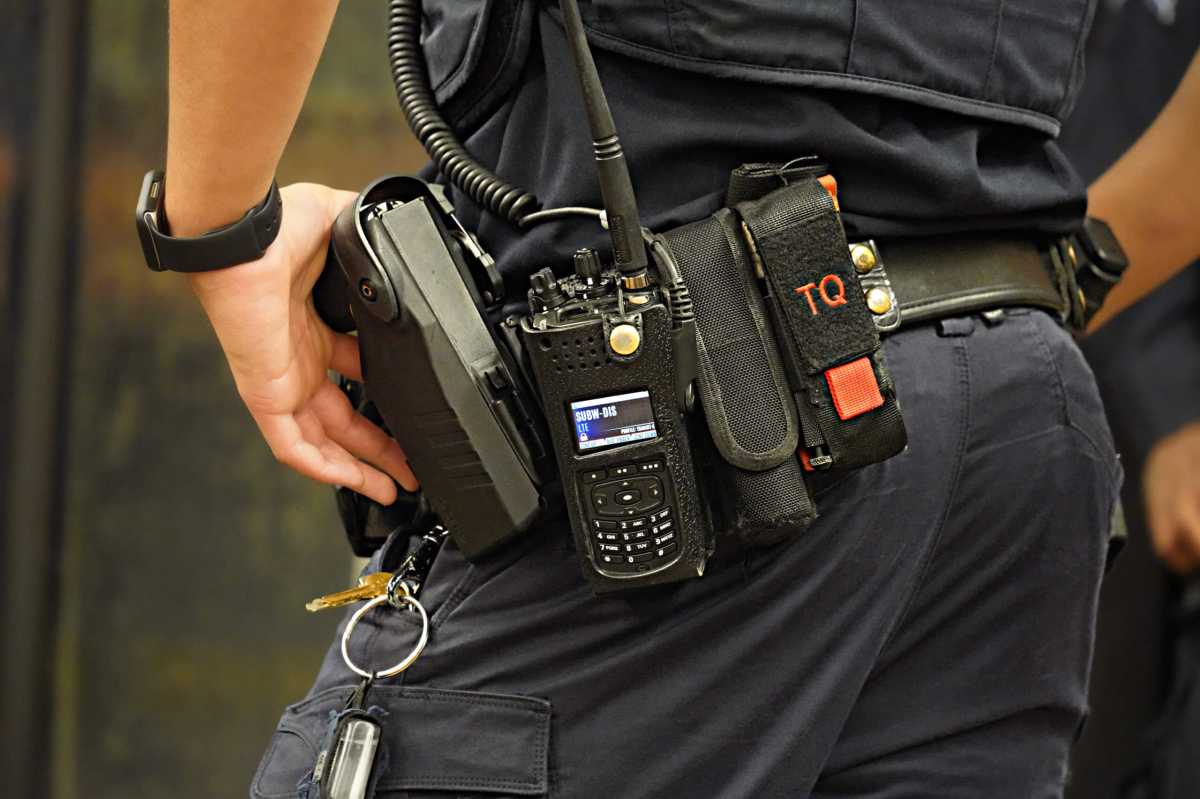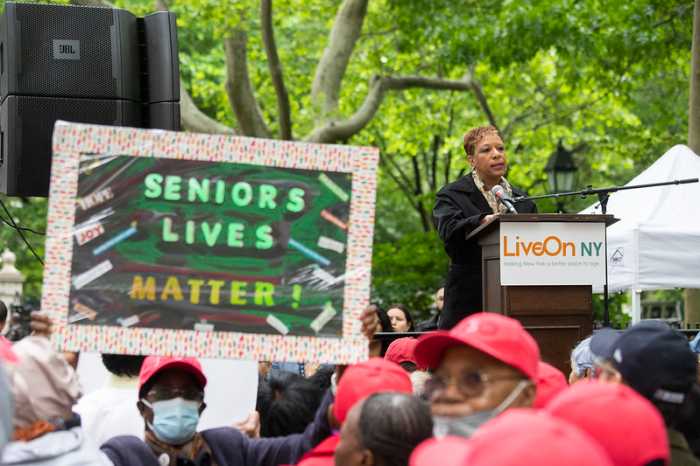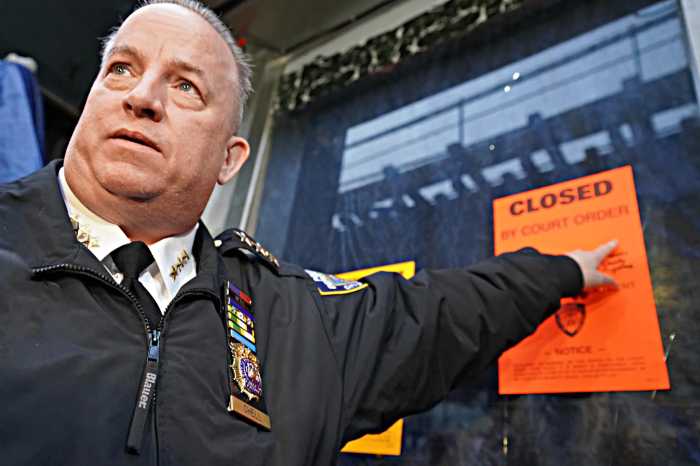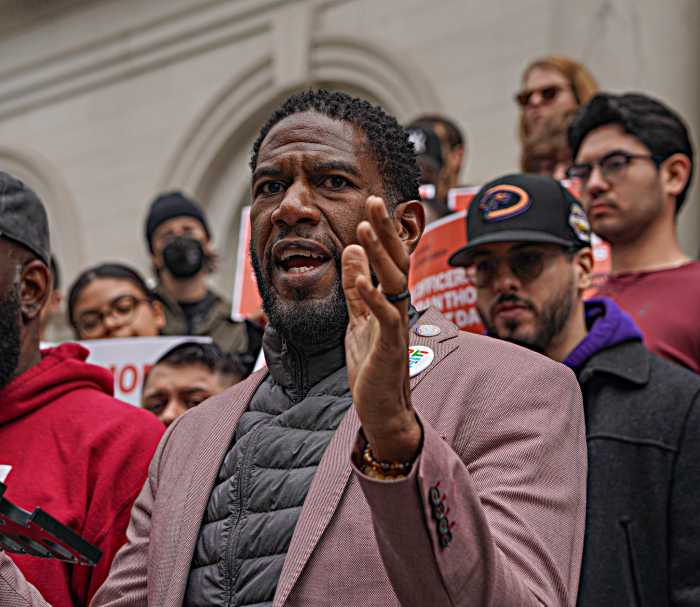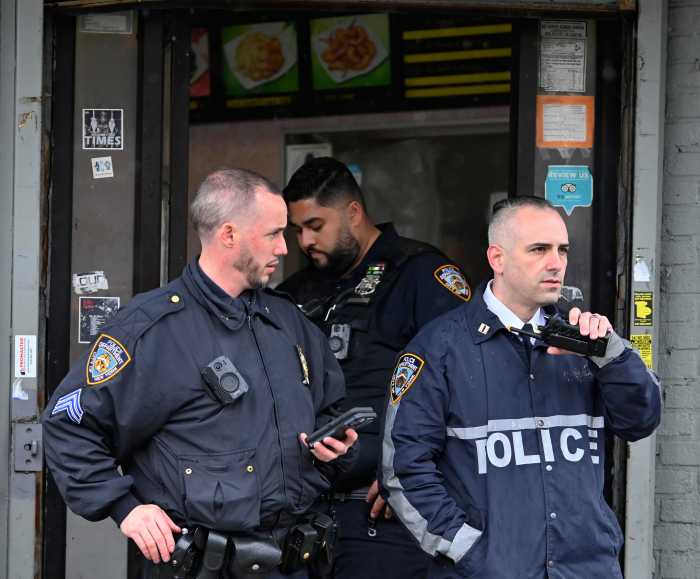New York Police Department honchos offered few specifics Friday on how much access news outlets will have to police radio channels after the department encrypted frequencies in six northern Brooklyn precincts last week, with more to follow soon.
As amNewYork Metro first reported earlier this week, the six Brooklyn North precincts encrypted their radio frequencies on July 17 — shutting the press and public out of real-time information from the department. New York City reporters and photographers heavily depend upon NYPD frequencies to cover breaking news events as they happen independently, without relying solely upon official information from police.
Department brass insists encrypting radio frequencies is part of updating 40-year-old technology that has become susceptible to being taken advantage of by those looking to break the law.
NYPD Chief of Information Technology Ruben Beltran on July 28, when asked by amNewYork Metro during a news conference at the NYPD Police Academy in Queens, provided little additional information about how much access the media will have to the department’s encrypted radio communications.
Instead of definitively saying if media outlets will gain access to the secure channels, Beltran said the department is currently looking at how police departments in other cities handled media access once they encrypted their own communications.
“We’ve been looking at other cities and we continue to explore other options to enable media access, consistent with other technology supports and what success other cities are having,” Beltran said.
Departments in other cities, like Baltimore, MD and Louisville, KY, have implemented methods to give the press and public access to private channels by making them go through an app — Broadcastify — that provides the frequencies on a 15-minute delay. In reviewing how New York’s peer cities have gone about encrypting their channels, Beltran said the department is looking to “strike that balance” between public safety and “appropriate media access.”
“Other cities have gone encrypted and have dealt with these issues also,” Beltran said. “That’s why we’re exploring to see what’s the best option to strike that balance between keeping police officers safe, keeping the community safe and making sure that there’s appropriate media access and information for transparency.”
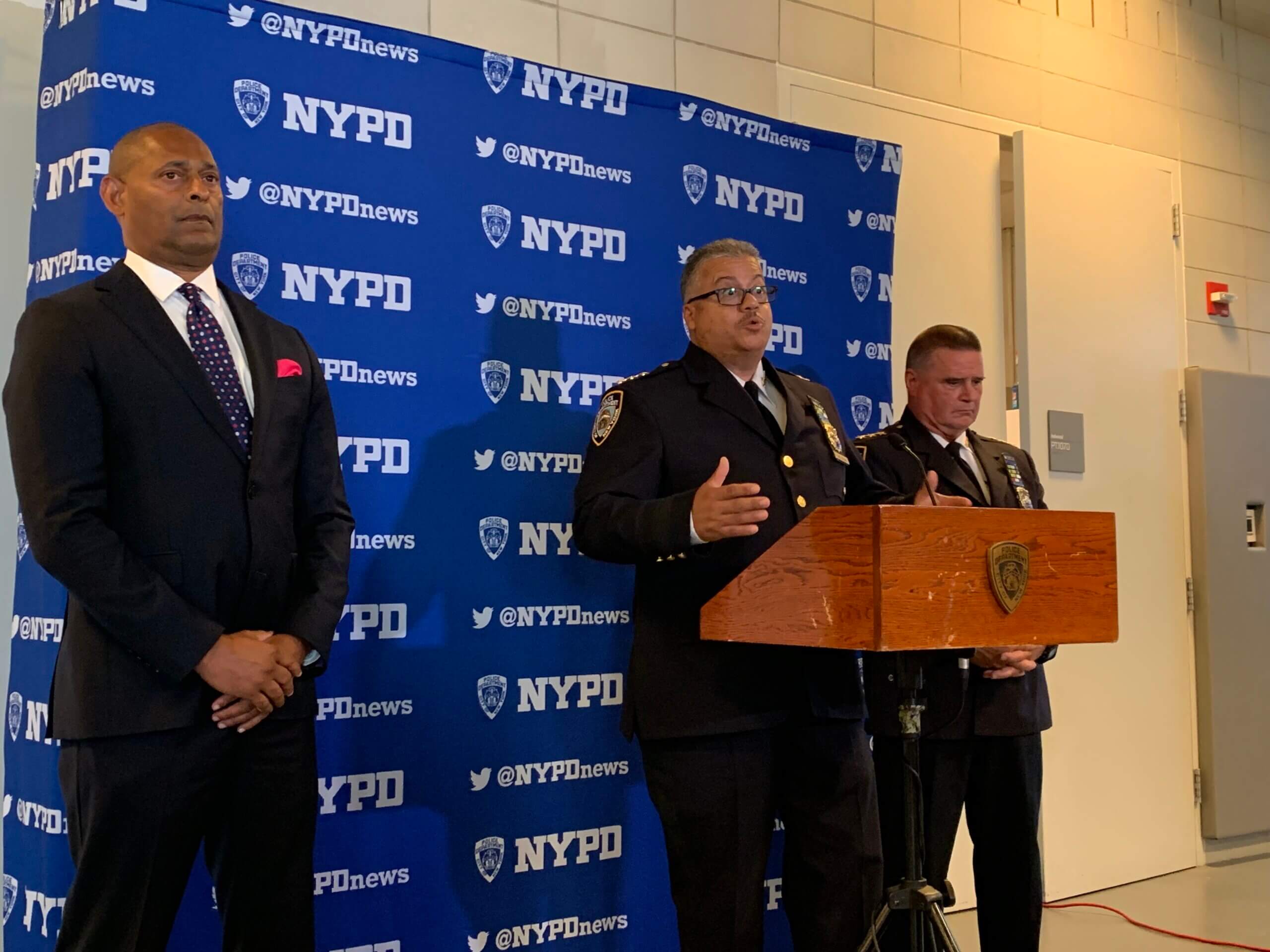
The technology chief also said cops are planning to expand encryption beyond radio channels in the six Brooklyn precincts, to all commands citywide — an effort that will take at least 18 months to complete. He, however, declined to provide a timeline for when the NYPD might again grant media access to its radio channels.
Beltran insisted the encryption was necessary because of “widespread interference” with police activities. He claimed criminal actors are doing this by both using information from NYPD frequencies and commandeering the channels themselves to break the law.
“We have a history of our radios being used against us,” he said. “We can provide examples of that history … we have a lot of examples that we can share with the media.”
Yet when amNewYork Metro asked for examples of such instances, the NYPD’s press office pointed to just one incident in 2016 — where an unnamed man took over a department radio frequency to make multiple verbal threats against a captain assigned to the Midtown South precinct in Manhattan.
Meanwhile, the NYPD’s decision to move ahead with encrypting its radios without having a plan to include the press has already drawn backlash from City Council Speaker Adrienne Adams’ office.
In a lengthy statement, following the NYPD press conference Friday, Adams’ spokesperson Rendy Desamours said the rollout raises “serious public safety and policy concerns.”
“It is troubling that the NYPD began encrypting its radio system without an adequate transparency plan implemented first, which can jeopardize the safety of New Yorkers,” Desamours said. “Journalists, volunteer first responders, and other key stakeholders across diverse neighborhoods rely on the system to help keep people safe and deliver important information. There should have been a comprehensive plan to maintain access and transparency, rather than it being an afterthought when making any changes. This rollout raises serious public safety and policy concerns that need to be further examined.”
Read more: Second Suspect Arrested for Brooklyn Murder



